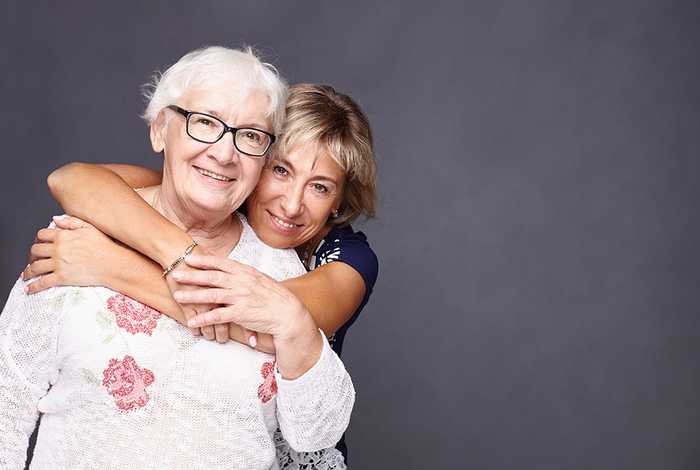Posted by Annie Button
Helping your older relatives with the cost-of-living crisis
The UK cost-of-living crisis is making life incredibly difficult for millions.
With the cost of basic expenses such as food, taxes, housing and healthcare at unprecedented highs, not to mention soaring prices of heating and petrol, it’s no wonder many people are financially stretched.

The impact this cost-of-living crisis has had - and continues to have - on people’s physical and mental wellbeing is severe. It’s estimated that 20% of the UK population is aged 65 and over, with thousands of elderly people finding the current crisis particularly demanding. For instance, many people rely on a fixed state pension which is constantly fluctuating in price due to inflation and interest rates.
Helping carers look after loved ones
Understandably, many people with elderly loved ones receiving care are worried about how they will continue to cope with the unpredictable crisis. Even if you’re not officially working as a carer, if you look after a relative who is receiving long-term care for poor physical or mental health, then you fall into the category of one.
This guide will provide you with some helpful tips and advice for how you can make this difficult time a little easier on yourselves and your older relatives and loved ones.
Budgeting and financial support
While your elderly relative or loved one might be familiar with their cash flow and outgoings, that doesn’t necessarily mean they don’t need your help.
Money can be a sensitive subject for many older people and this can cause stress for family members, but the important thing for them to know is that they recognise the support they have available. Ofgem - the energy regulator for the UK - has outlined some guidelines and support regarding energy bills. If your relatives are finding it challenging to stay on top of the energy price increases, then they may be entitled to financial support incentives from the UK Government. These include:
- Discounted energy bills - every single UK household will get £400 off their energy bills between October 2022 and March 2023, either credited to their energy account or meter. This is not a loan and therefore does not have to be paid back.
- Winter fuel payment - depending on your age, who you live with and whether you’re receiving certain benefits, you could receive a one-off payment of £100-£300. Those that are over the State Pension age (66 years old) and receive a State Pension, this money should be paid as a lump-sum automatically.
- Warm home discount - this is a one-off payment added as credit to electricity bills of those receiving the Guarantee Credit component of Pension Credit. Again, it’s worth checking to see whether they are eligible for this.
Household support fund - this payment is designed to help those considered most in need during this cost-of-living crisis. This is decided by each person’s local council, so it’s worth contacting your relative’s local authority to find out more and what they could be entitled to.
Energy price guarantee - energy suppliers are limited on the amount they can charge per unit of energy. This replaces the energy price cap from October 2022 until April 2023. This is estimated to save the average household £1,000 or thereabouts, but it’s important to remember that each bill will still be based on each household’s usage. This will also be applied automatically to energy bills.
Nobody wants to spend any more on their energy bills than is necessary. With these prices rising and cutting further into everybody’s pockets, it’s a good idea to help them save money on bill payments where possible. Minor adjustments can make a big difference.
Here are some good ways to preserve energy to help cut down on energy bills:
- Replace traditional light bulbs with LED bulbs, and turn them off when leaving rooms.
- Wash clothes at lower temperatures (such as 30-40°C) as this uses less energy than hot washes do.
- Assign thermostats to heat the home without wasting unnecessary energy.
- Turn radiators off in unused rooms and bleed them so warm air can circulate easily.
- Fit double glazing to windows and ensure they are draught proofed to prevent heat from escaping.
Emotional support
The cost-of-living crisis is constantly in the news and seeing regular developments every day. Our elderly relatives are bound to feel worried, confused and upset by constant exposure to this issue, not to mention how it could affect them.
It’s vital to think about our own mental health as well as that of our loved ones, because they may be struggling even though they may not be forthcoming with any worries. This is a particularly challenging time for millions of us in the UK, and while you may have found some sources of comfort and reassurance, it’s normal if you feel overwhelmed or concerned about how you might be able to cope.
Talking is often the best medicine; often a deep meaningful conversation can be just what your relative needs to feel better. By offering a shoulder to lean on and listening to their worries and providing reassurance, you could be making an incredibly positive difference. Sometimes all they need is a bit of companionship.
If they would prefer to speak with a mental health professional, it’s always worth considering talking therapies, which can help people feeling anxious, low or struggling to manage their thoughts and feelings and how they affect their mood and behaviour.
Low mood, depression, and anxiety can affect people, particularly as they get older. There are numerous reasons your relative may not be feeling themselves. Some of the most common ones include:
- Being in poor health
- Mobility issues that require physiotherapy
- Losing their independence
- Relationships and family problems
- Financial worries
- Bereavement
- A lack of confidence to venture out
- Losing interest in hobbies or activities they usually enjoy
- The time of year (Seasonal Affective Disorder)
Whether you’re local to your elderly loved one or further away, being there for them can make a positive difference. Sometimes all it takes is for them to realise that they’re not alone and a simple visit, phone call or letter can help them feel less isolated.
These discussions can occasionally bring up difficult family matters and the conversations can be hard, but knowing that you have their best interests at heart can make a world of difference.
Practical and active assistance
If elderly relatives live in a care home or receive live-in care, it’s reassuring to know that they’re in good hands. However, if they live alone, then it’s normal to feel concerned about how they can look after themselves during this tumultuous and uncertain time.
For example, if they were to have a fall or accident and nobody else was around, how would you know what happened and how to help? This is where smart home monitoring systems can alert you to any unexpected changes and allow you to check in, and help if need be.
In addition, being on hand to help sort out odd jobs around a home, running errands, cooking meals, fixing things, decluttering and other small jobs can help elderly people feel less stressed or pressured to pay for domiciliary and home care services.
However, if you need help finding in home services, then Autumna is often the best place to start your search. Its database covers every single elder care domiciliary service in the UK so, if you need visiting home care services then try here, or if you would prefer live-in carers, then this might be your best starting point.
Alternatively, you could complete this quick and simple form that will identify exactly what care you think you need for your elderly relative, and Autumna will send you a shortlist of all the providers that can help you.
While you may be feeling increasingly concerned about your elderly relative or loved one, it’s important to take time for yourselves too. Citizens Advice outlines how caregivers and providers can get help.
Whether it’s practical, emotional or financial help that your relative needs, there are options available to you. Balancing all of this can be incredibly hard, so don’t try to do everything all at once.
Finally, if you need to speak to someone and get expert advice about elder care services throughout the UK, then Autumna’s phone line is open 7 days a week.
Receive a Free Care Provider Shortlist!
Let our expert team of advisers get your search off to a great start.
Tell us a little about your needs and we'll send you a bespoke shortlist of care providers! Click the button below to begin, it takes just a few minutes.
Other articles to read
Autumna Blog

Older Persons Care Advice
How to talk to your parents about care options
October 2nd, 2025
Learn how to talk to your parents about care options with compassion. Explore choices together and plan for the future with dignity and respect.

Older Persons Care Advice
Guide to empowering and promoting independence in older age
September 30th, 2025
Read our practical guidance for families on empowering and promoting independence in older age, helping loved ones stay confident and in control.

Older Persons Care Advice
Ultimate guide to jointly owned property and care home fees
September 26th, 2025
Understand jointly owned property and care home fees, how assessments work, and steps to protect your finances and plan ahead with confidence.






